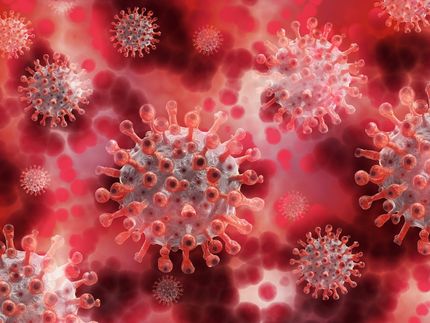New data show potential for Novartis Meningitis B vaccinecandidate to cover majority of meningococcal serogroup B strains
New data demonstrated that antibodies induced by Novartis vaccines investigational, four component, Meningococcal Serogroup B Vaccine (4CMenB) killed the majority of a collection of geographically and genetically diverse meningococcal serogroup B (MenB) strains. The strain coverage research findings were recently published in the Proceedings of the National Academy of Sciences.
To define the potential coverage of 4CMenB against circulating MenB strains, the research investigators examined the characteristics of a collection of 124 MenB strains using pooled sera from immunized adults, and 57 strains using pooled sera from immunized infants. The strains were selected to represent a wide range of variability of antigens but were not intended to represent any specific regional epidemiologic sample of MenB strains. The data demonstrated that 85 percent of the tested strains were killed by pooled sera of adults vaccinated with 4CMenB, as measured by serum bactericidal assay (SBA). SBA is an established and validated correlate of protection. Additionally, the vaccine performed well in infants; even though infant immune systems are still maturing, 74 percent of strains were killed using pooled sera from infants vaccinated with 4CMenB. Infants are most at risk of MenB disease and their protection presents the greatest unmet need.
In addition to the vaccine coverage results, a subsequent analysis of a new predictive model, "Meningococcal Antigen Typing System" (MATS), against the tested MenB strains, supported the potential benefits of a multi-component vaccine. When MATS detected that three vaccine antigens were sufficiently present on any MenB strain, 100 percent of the time these strains were killed by pooled sera from immunized adults. In addition, when one or two antigens were detected to be sufficiently present on any MenB strain, 85 and 94 percent of the time, respectively, they were killed.
"These important findings support our innovative approach using multiple novel components in a single vaccine to provide broad coverage against the deadly and unpredictable MenB disease," said Andrin Oswald, Head of Novartis Vaccines and Diagnostics Division. "Novartis is committed to developing a MenB vaccine that protects all age groups who are at highest risk of contracting often deadly MenB disease, especially infants and young children[2]".
MATS is a new, simple and reproducible assay that correlates with SBA to overcome the challenge of traditional SBA testing on large collections of strains. The immense diversity and number of circulating MenB strains around the world and the limited infant serum volume derived from clinical trials makes traditional testing difficult and cannot be made a routine procedure. Novartis Vaccines, in collaboration with Novartis Diagnostics, developed MATS as a scientific model to predict whether MenB strains are potentially covered by the vaccine.
The MATS method allows simple and rapid prediction of potential vaccine coverage in different geographic regions and monitoring of strain evolution. Its results alone are not intended to demonstrate, and do not imply, clinical effectiveness.
"The MATS model is a milestone in meningococcal serogroup B vaccine development," said Joel Ward MD, Professor of Pediatrics at the Center for Vaccine Research, School of Medicine, University of California Los Angeles. "Given the geographic diversity of MenB and the potential for mutation, it was previously considered impossible to evaluate immune responses to the many circulating strains that can cause deadly disease. MATS has the potential to be used for vaccines against meningococcal diseases and for vaccines against other bacteria as well."
Other news from the department research and development
Most read news
More news from our other portals
See the theme worlds for related content
Topic world Antibodies
Antibodies are specialized molecules of our immune system that can specifically recognize and neutralize pathogens or foreign substances. Antibody research in biotech and pharma has recognized this natural defense potential and is working intensively to make it therapeutically useful. From monoclonal antibodies used against cancer or autoimmune diseases to antibody-drug conjugates that specifically transport drugs to disease cells - the possibilities are enormous

Topic world Antibodies
Antibodies are specialized molecules of our immune system that can specifically recognize and neutralize pathogens or foreign substances. Antibody research in biotech and pharma has recognized this natural defense potential and is working intensively to make it therapeutically useful. From monoclonal antibodies used against cancer or autoimmune diseases to antibody-drug conjugates that specifically transport drugs to disease cells - the possibilities are enormous





















































